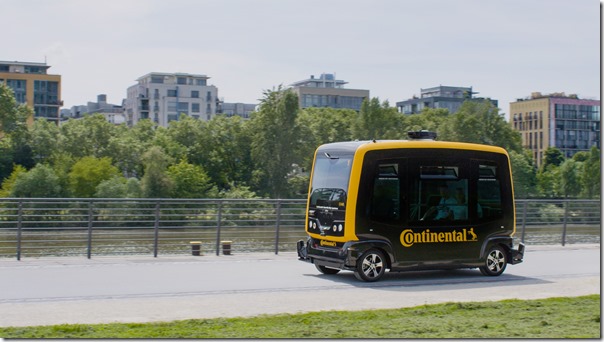What Is Continental Doing with ~10,000 Engineers?
Continental, an automotive supplier that has a deep engineering bench, is making a huge organizational change, one that Dr. Elmar Degenhart, chairman of the executive board, explains is necessary because, as he puts it, “The industry is changing at a high pace, so we have to change, too.”
Continental, an automotive supplier that has a deep engineering bench, is making a huge organizational change, one that Dr. Elmar Degenhart, chairman of the executive board, explains is necessary because, as he put it, “The industry is changing at a high pace, so we have to change, too.”

The company has some 244,000 people, of which 27,000 are engineers. Degenhart said that in order to handle large, complex tasks, such as those associated with developing autonomous driving capabilities, they are taking engineers from two of its organizations, Interiors and Chassis, and combining them under the direction of Dr. Dirk Abendroth, chief technology officer, who officially started with the company on January 1.
They’re not taking just a few engineers from the two sections but, Degenhart said, on the order of 10,000 to 12,000 of them.
Abendroth came to Continental from Byton, where he was one of the founders, and had been in charge of autonomous driving and powertrain. Prior to that he had been at BMW, where among his duties were being the head of electric powertrains, as well as running the Software Development and System Integration of Electric Powertrains for the OEM.
Abendroth said that his two major areas of focus have been software engineering and system integration of large, complex systems.
Now he has a large team to address those large challenges.
The change of that magnitude—taking thousands of engineers from their home bases and putting them into an organization where their skills and talents will be working cross functionally—is certainly one that can have some big benefits for Continental as it addresses autonomous driving and connected mobility.
RELATED CONTENT
-
Plastics: The Tortoise and the Hare
Plastic may not be in the news as much as some automotive materials these days, but its gram-by-gram assimilation could accelerate dramatically.
-
TRW Multi-Axis Acceleration Sensors Developed
Admittedly, this appears to be nothing more than a plastic molded part with an inserted bolt-shaped metal component.
-
Cobots: 14 Things You Need to Know
What jobs do cobots do well? How is a cobot programmed? What’s the ROI? We asked these questions and more to four of the leading suppliers of cobots.


.jpg;width=70;height=70;mode=crop)






